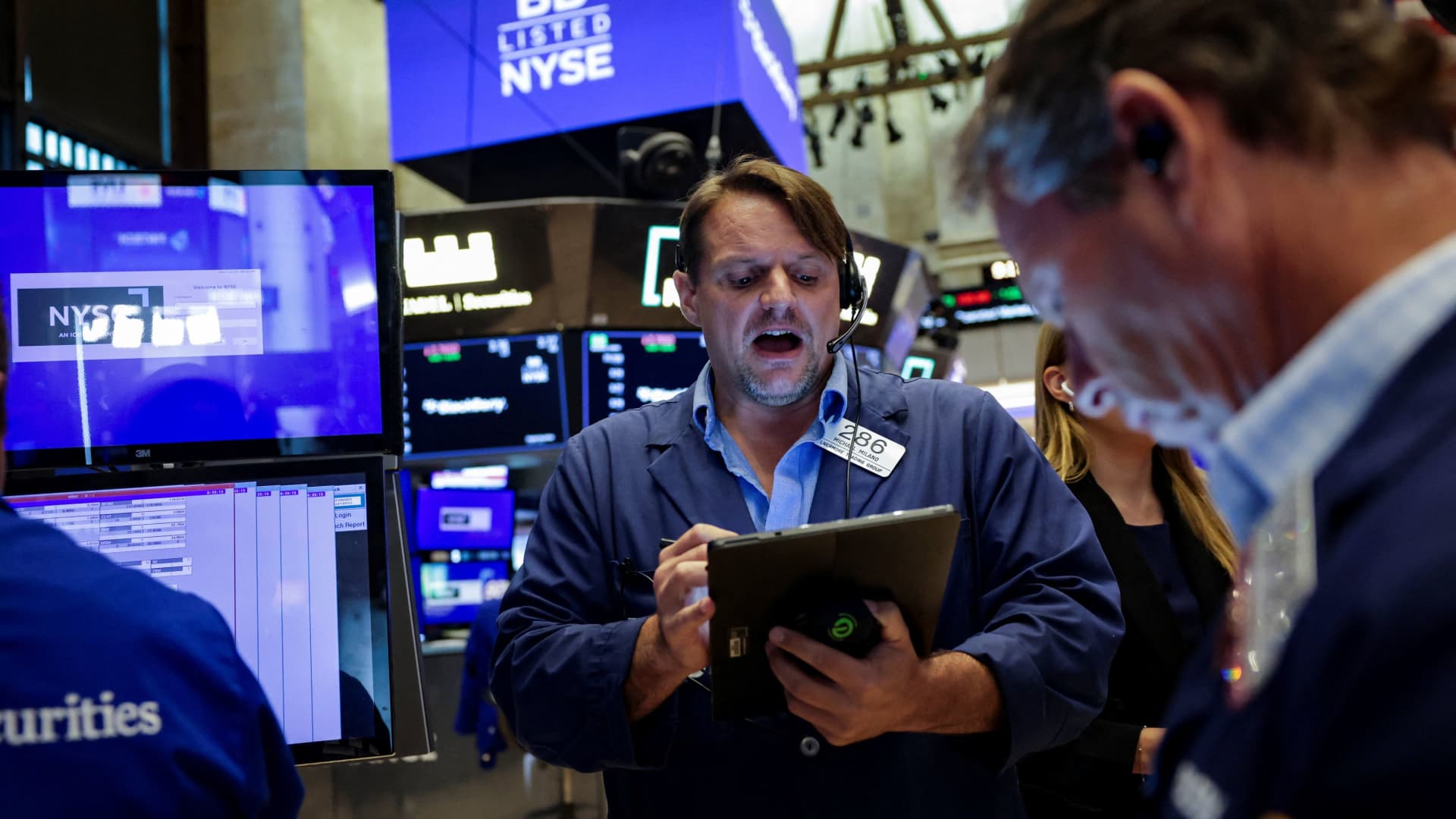President Donald Trump’s plans to slap a 100% tariff on semiconductor imports didn’t wreak havoc on chip stocks. In fact, these shares are rising after the announcement, and here’s why. Trump said Wednesday companies that are “building in the United States” will be exempt from the heavy levies. Still, specifics about the plan, such as how much U.S. manufacturing a company needs to do in order to qualify for the tariff exemption, were not immediately clear. While the exact details are still pending, Wall Street analysts believe the news marked an overhang removal for the sector. On top of that, a swath of tech companies have already committed significant dollars to build out manufacturing footprints at home, making them ineligible for the 100% tariff. Apple made the latest pledge to increase domestic production as it seeks to avoid punishing tariffs. The tech giant announced it will spend an additional $100 billion on U.S. companies and suppliers over the next four years. Several top chipmakers, including Taiwan Semiconductor , Nvidia and GlobalFoundries , also have already vowed to manufacture some of their products in the U.S. Here is what Wall Street analysts are saying about Trump’s tariff threat. Bank of America “From a high level, the 100% headline number seems intimidating, but in practice we expect a much lower impact, as major foundries such as TSMC/Samsung/INTC, and major IDMs such as TXN/MU have all committed to building significant US manufacturing footprint. Many other analog vendors such as ADI, NXPI, MCHP also have hybrid structure where they can potentially allocate US factories to US demand. Overall, we note specific details of the Section 232 tariff structure are not yet announced, but they can remove the current overhang on the sector if companies are able to work through this headline impact.” Raymond James “A top-line tariff of 100% for semiconductors is attention grabbing, but the carve-out for companies that are building/planning to build will likely result in a 0% tariff on a wide swath of products. This is important as products covered by a sectoral tariff are excluded from reciprocal tariffs. Overall, we view this as a positive development, but the lack of details raises significant questions about the final impact. Beneficiaries of this could include Apple (especially given that the announcement was made at a White House event with CEO Tim Cook), TSMC, Nvidia, Texas Instruments, Micron, and GlobalFoundries.” Morgan Stanley “To some degree this outcome would be something of a relief. Yes, 100% tariffs are unpalatable but if companies are given time to restore them, the real tax is just the higher cost of building chips in the United States. It’s also important to note that this will not happen in isolation – we would expect strong retaliatory tariffs everywhere. So where the immediate reaction is to buy companies with a large US manufacturing base, the real optimization is to be prepared for multipolarity – that is, to build in the regions where the product is consumed. To that end, we disagree with some of the consensus thinking on the device side. The reactionary beneficiaries are Intel, Texas Instruments, Global Foundries, and Amkor.” Bernstein “At first glance the application of said tariffs, if applied to “raw” semiconductor imports, would be a bit painful but likely manageable as the US does not import a ton of raw chips (~$45B worth in 2024, with almost half coming from Taiwan and Malaysia). However, the actual implementation is apparently going to be considerably more complicated (with some potential material reprieves), as he indicated that companies building, or committing to build, in the US will in fact face no tariffs.” Goldman Sachs “We believe it is likely that some semiconductor companies may choose to increase their investment footprints in the US in order to avoid potential tariff impacts. While we await more details to fully assess the impact across our coverage, we believe a sub-segment of our coverage may be at reduced risk of these sectoral tariffs by virtue of their explicit mention in the press conference or contemporaneous press releases. For reference, these companies include: Texas Instruments, Applied Materials, TSMC, Nvidia, Broadcom, Intel, GlobalFoundries, Micron, IBM, Samsung Electronics, Amkor, GlobalWafers, Corning, and Coherent. We believe that the short-term impact on some of these companies is that, all else equal, these named companies may be perceived as “tariff beneficiaries” in the near term, pending more details on implementation.” JPMorgan “Apple and Tim Cook delivered a masterclass in managing uncertainty after months and months of overhang relative to the potential challenges the company could face from tariffs. For Apple, this marks a significant increase in investment in the component supply chain in the US, although stopping short of investments in relation to final assembly, but also largely comprising a re-routing of investments to the US rather than incremental investments from a global perspective. Additionally, the exemption from tariffs suggested for Apple on account of the higher investments flips the narrative on the overhang on the shares in relation to tariff uncertainty to now position the company to have the least tariff associated risk relative to Hardware peers, which have to navigate the suggested 100% tariff on semiconductors.”





